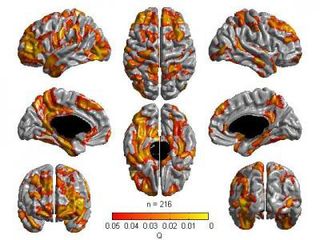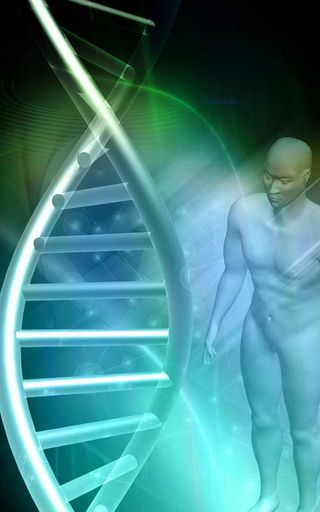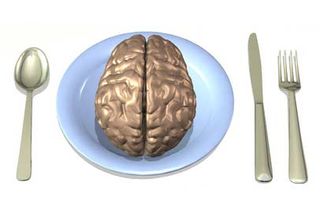
Robin Nixon Pompa
Robin Nixon is a former staff writer for Live Science. Robin graduated from Columbia University with a BA in Neuroscience and Behavior and pursued a PhD in Neural Science from New York University before shifting gears to travel and write. She worked in Indonesia, Cambodia, Jordan, Iraq and Sudan, for companies doing development work before returning to the U.S. and taking journalism classes at Harvard. She worked as a health and science journalist covering breakthroughs in neuroscience, medicine, and psychology for the lay public, and is the author of "Allergy-Free Kids; The Science-based Approach To Preventing Food Allergies," (Harper Collins, 2017). She will attend the Yale Writer’s Workshop in summer 2023.
Latest articles by Robin Nixon Pompa

By 7 Months, Baby Knows Your Moods
By Robin Nixon Pompa published
Babies as young as 7 months old already process happy and angry voices in ways analogous to the adult brain.

8 Reasons Our Waistlines Are Expanding
By Robin Nixon Pompa published
From better hygiene to foods that mimic drugs, the reasons we're so fat might shake up your diet.

How to Tell if a Guy Is Trustworthy
By Robin Nixon Pompa published
Facial width can say a lot about whether a guy is aggressive and trustworthy, with wider faces linked to less trustworthy behaviors.

Studies Reveal Why Kids Get Bullied and Rejected
By Robin Nixon Pompa published
To fit in socially, children should learn to identify and properly respond to non-verbal social cues.

Modern Insanity: What Really Makes Us Crazy
By Robin Nixon Pompa published
The typical American lifestyle teems with risk factors for mental illness.

Dads Are Key to Making Us Human
By Robin Nixon Pompa published
Among mammals, 95 percent of males have little to no interaction with their children. For humans, this differs.

Socialites and Curmudgeons: Two Brain Types
By Robin Nixon Pompa published
Socialites and curmudgeons not only have different party demeanors, they may also have different brain structures.

Surprising Truth About Heredity and Moms
By Robin Nixon Pompa published
Every baby gets half his genes from Mom and half from Dad, but primarily mothers are in charge early on.

Epigenetics: A Revolutionary Look at How Humans Work
By Robin Nixon Pompa published
Scientists are pinpointing how life experiences — from toxin exposure to receiving affection — can alter genome expression.

Sex Talk at Work Hurts Bottom Line
By Robin Nixon Pompa published
Some women and many men enjoy good-natured flirtation and sexual innuendoes in the workplace, a new study finds. But whether they like it or not, it is likely dragging them down.

Do Animals Enjoy Sex?
By Robin Nixon Pompa published
Animals obviously hook up, at least during mating season. But do they like it? According to experts, there are two answers: yes, and it is impossible to know.

5 Myths of Fertility Treatments
By Robin Nixon Pompa published
There are common misperceptions about "test-tube" and "designer" babies.

Even Babies Know Rock 'n' Roll
By Robin Nixon Pompa published
Newborns can follow a rhythm, a new study has found, suggesting rocking out is innate.

Brain Food: How to Eat Smart
By Robin Nixon Pompa published
Five things you should know about feeding your brain.

Spirituality Spot Found in Brain
By Robin Nixon Pompa published
Experiences of selflessness, a core aspect of spirituality, may be the product of reduced activity in a specific brain region.

5 Surprising Holiday Health Myths
By Robin Nixon published
Scientists cite five fears that can officially be crossed off the holiday worry list.

Happiness: Contagious as the Flu
By Robin Nixon Pompa published
In a good mood? Your neighbor, her friends and even her friends' friends should thank you.

The Common Cold: Myths and Facts
By Robin Nixon Pompa published
Surprising truths about the common cold.

Why We Are All Insane
By Robin Nixon Pompa published
Humans remain prone to acting mental because, in non-extreme forms, mental ‘illnesses’ can help ensure survival.

Scientists Say We Can See Sound
By Robin Nixon Pompa published
New research suggests the human visual system processes sound and helps us see.

Cooking and Cognition: How Humans Got So Smart
By Robin Nixon Pompa published
Brain metabolism, possibly stimulated by early cooking, may be the main factor behind our intelligence.

Hunger Can Make You Happy
By Robin Nixon Pompa published
Hunger may have an anti-depressant effect, helping us to be more alert, calm.
Get the world’s most fascinating discoveries delivered straight to your inbox.

